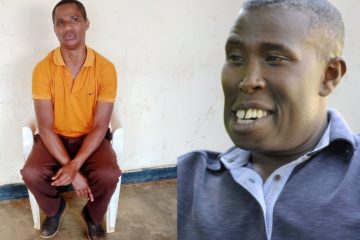On 13th March 2016 hundreds of Rwanda’s senior leaders concluded the thirteenth annual National Leadership Retreat locally known as ‘Umwiherero’, in which they discussed national priorities.
Among the 14 resolutions adopted by the Retreat include one, actually the last, “to speed up the construction of the National Laboratory for DNA tests’’. My article today is a reflection on why DNA test is so important not only in the forensic experiences but also in supporting other sectors whose decision making is always built on accurate facts.
To begin with, DNA is the material found in cells that determines characteristics such as eye, hair, and skin color. DNA test experts affirm that each person’s DNA is different, except for identical twins. DNA evidence can be collected from different parts and or components of our body like blood, saliva, sweat, urine, skin tissue, etc. So, DNA test analyses evidence collected to accurately identify facts about a given experience.
Undoubtedly, the National Laboratory for DNA tests will help the law enforcement organs in Rwanda to investigate and prosecute different types of crimes in order to achieve justice at a level that is highly satisfactory.
Particularly, the Government of Rwanda has, for example, committed to prevent and stop child abuse. The Laboratory will help in holding abusers accountable by first of all identifying them, secondarily; the Lab will provide evidence which will carry weight in court to build a stronger case against abusers. In the long term, this will increase the chances of taking the perpetrator off the community and prevent any future instances of abuse of children in the communities.
The Laboratory will also assist other services like migration in the process of granting citizenship and or nationality. In the US for example, in order to transmit U.S. citizenship to a child born abroad, there must be a biological relationship between the child and a U.S. citizen parent. So, genetic testing is a useful tool for verifying a stated biological relationship in the absence of sufficient other evidence to establish such relationship.
Similarly, in some situations in some countries, the courts or offices of registry of birth and marriages have to rely on DNA tests to determine paternity of a child or to provide proof of parentage.
To limit my thought to few areas, it is important to also notify that DNA test is worldwide used to identify suspects involved in international terrorism. For example, the US military used DNA to identify and confirm deaths of Al Qaeda suspects in their different areas of operations. Likewise, it is said that the US has been seeking to take DNA samples from the family of the terror suspect in search for Osama Bin Laden. DNA test was also used to confirm Bin Laden death in Afghanistan.

With the aspiration to turn into a knowledge-based, Rwanda is also fully cognisant of the importance of evidence based policy making and implementation, at least in forensic, medical, legal and connected domains. Undoubtedly, the National Laboratory for DNA tests will serve that purpose.
END
Emmanuel -Kigali






